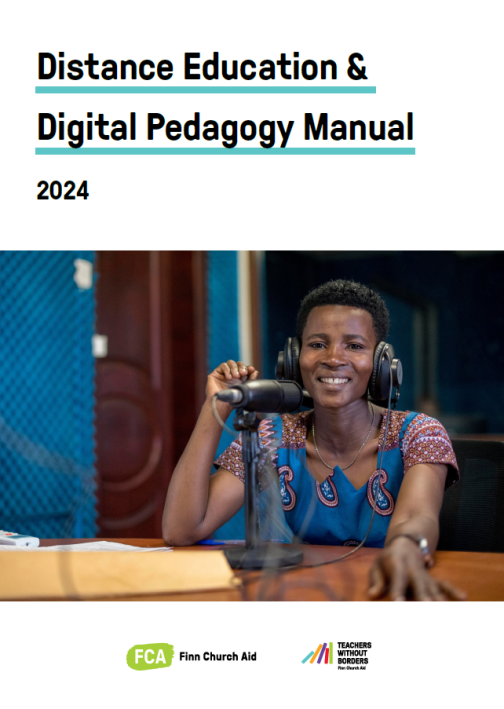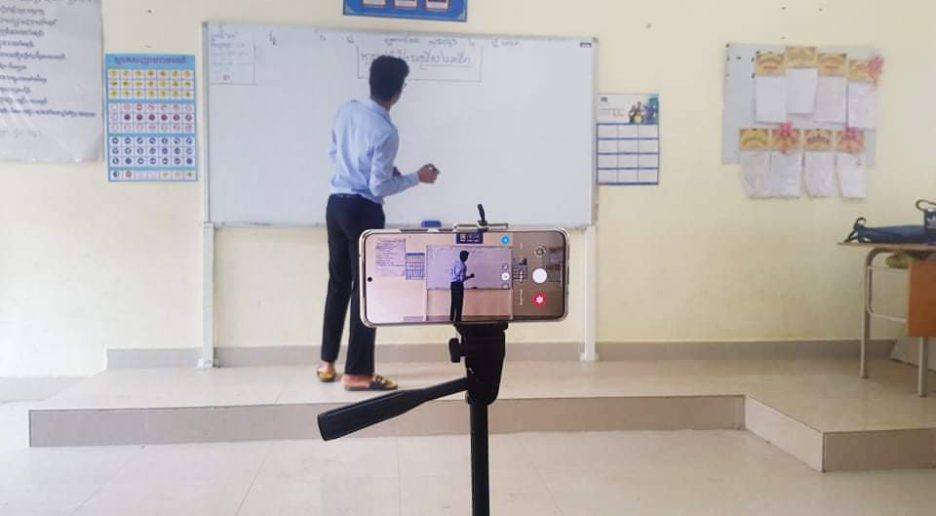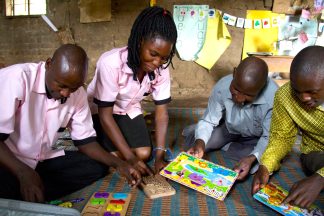Teacher Training Manual on Distance Education & Digital Pedagogy supports teachers and other education personnel’s continuous professional development. Eight training modules focuses in strengthening pedagogically high-quality distance education and remote learning especially in diverse, low resource contexts. The manual is adaptable for use anywhere in the world.
The Pandemic Highlighted the Possibilities – and Necessity – of Distance Learning
The training manual was developed by education experts from Finn Church Aid (FCA) and the Teachers Without Borders (TWB) network. The development of the materials began as early as 2020 in response to school closures caused by the COVID-19 pandemic, when teachers and learners had to quickly adapt to various forms of distance learning.
Even though the pandemic is over, the need for high-quality distance education still exists. Ensuring the continuity of learning for all learners is crucial in all situations, especially during crises. According to Education Cannot Wait, 224 million children lived amidst crises in 2022.

“While nothing can replace the importance of face-to-face interaction in in-person teaching, distance education provides, in certain situations – especially during crises – an extremely important, and sometimes the only, opportunity for learning to continue. At its best, distance education, along with the continuation of familiar school routines even partially, can support students’ mental well-being and resilience,” reflects Sara Isotalo, Education and Research Specialist and Team Leader at Finn Church Aid.
Versatile Training Manual Adapts to Different Needs
“Our education specialists have compiled elements that support the high-quality implementation of distance education. It includes perspectives and practical tips on digital pedagogy, active learning, differentiation, and collaboration with parents, as well as well-being care,” Isotalo elaborates on the content of the training manual.
The training manual consists of eight (8) training modules that can be used flexibly:
- Distance Education,
- Distance Education Modalities,
- Pedagogy of Digital and Distance Education,
- Psychosocial and Emotional Wellbeing,
- Learner-Centred Methods in Distance Education,
- Home Support – Parents and Caregivers’ Role and Collaboration,
- Inclusive Education, and
- Assessment and Evaluation.
The content design allows the trainer or facilitator to pick individual modules or sessions and adapt the training content according to the context and target group’s needs.
We hope you find it useful!




